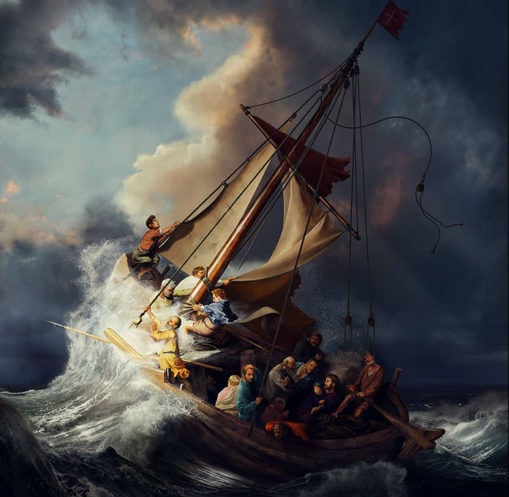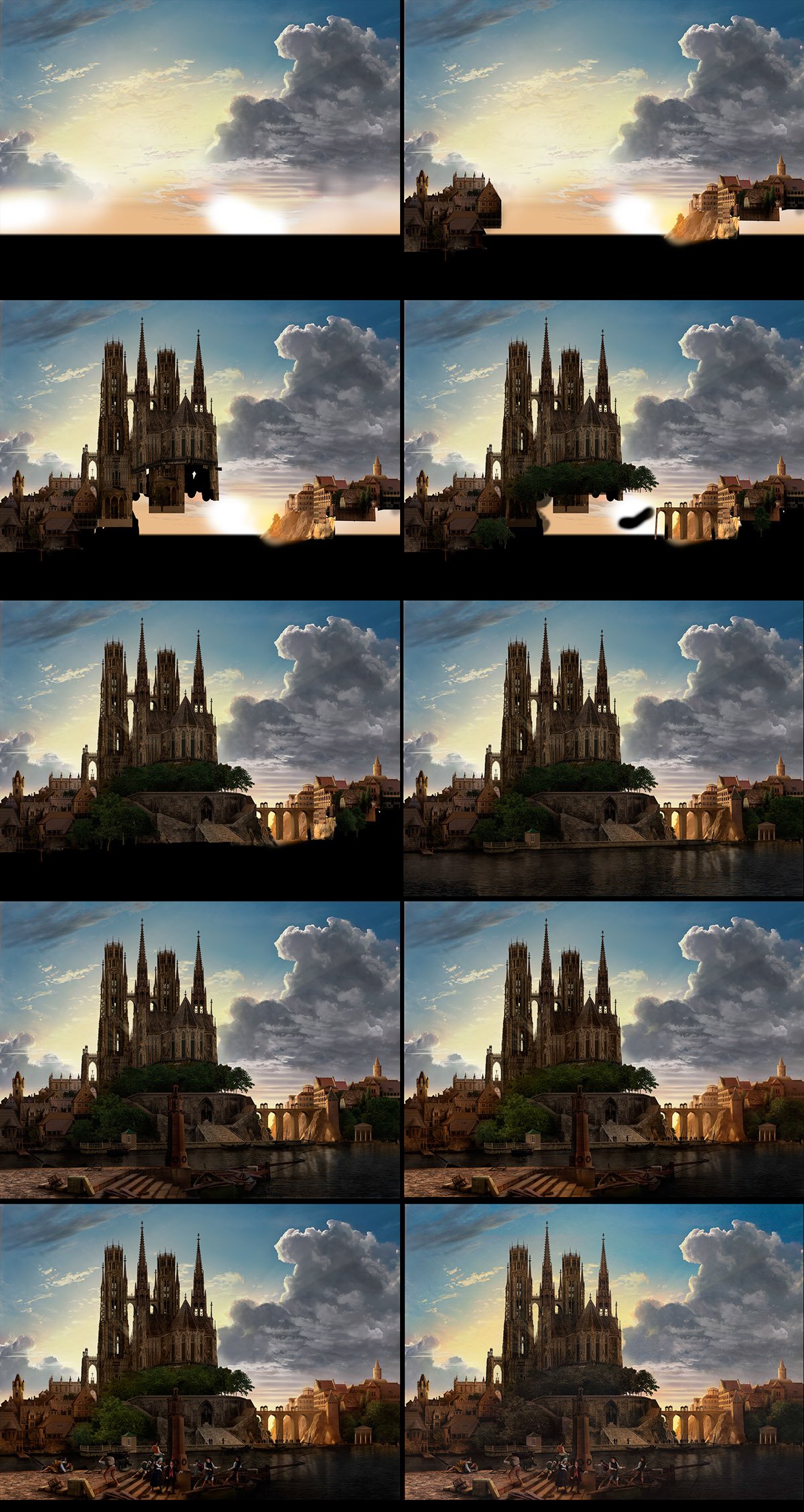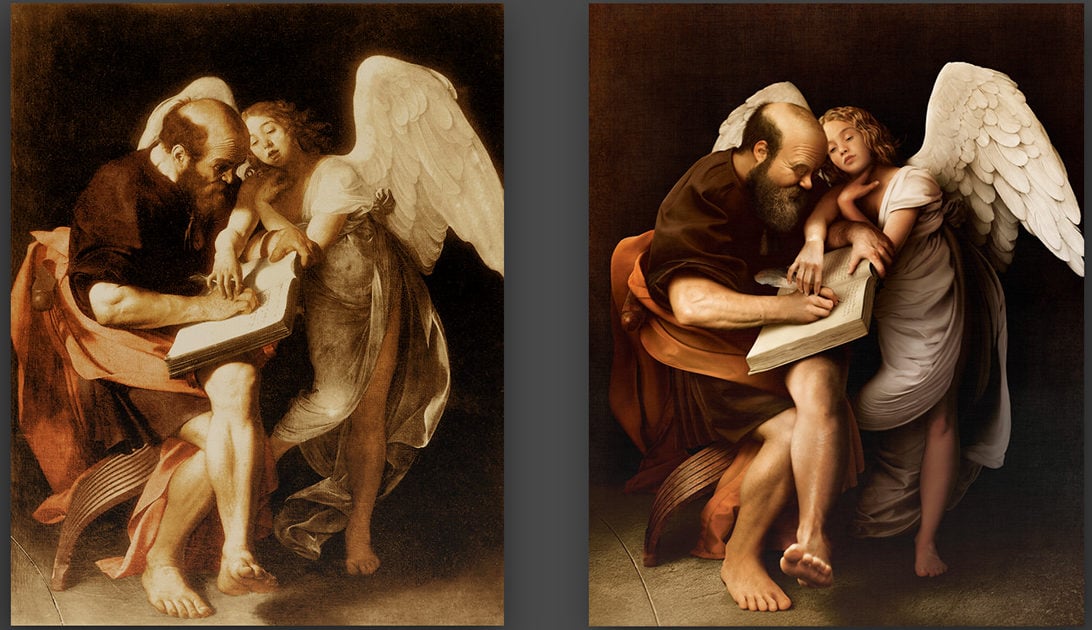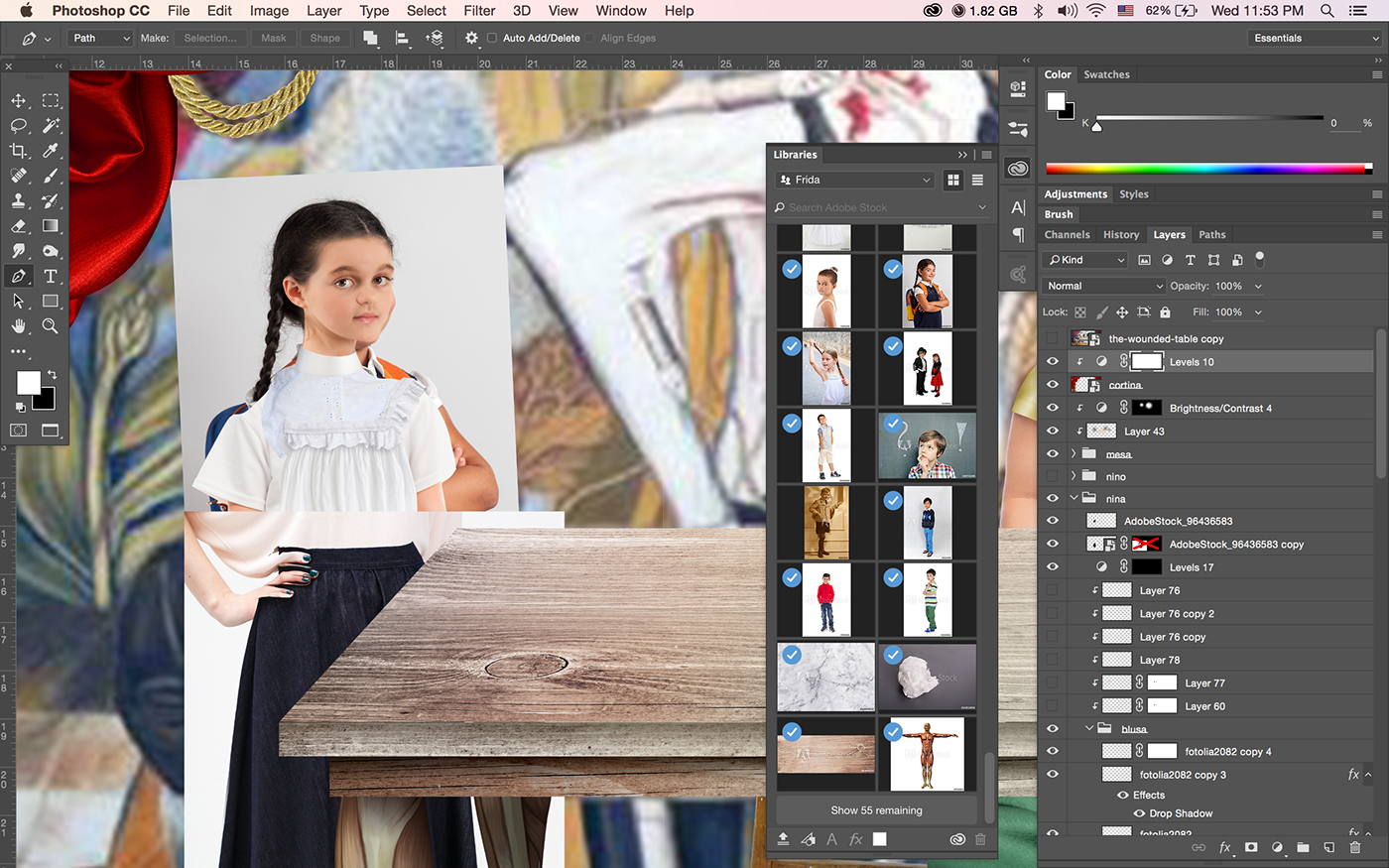Art World
See Digital Artists’ Amazing Recreations of Lost Masterpieces From Stock Photos
Rembrandt, rebuilt in Photoshop.

Rembrandt, rebuilt in Photoshop.

Sarah Cascone

The notorious 1990 Isabella Stewart Gardner Museum heist remains unsolved, and it remains to be seen if masterpieces such as Rembrandt van Rijn‘s Christ in the Storm on the Sea of Galilee will ever be recovered. Adobe believes it has come up with the next best thing, commissioning four digital artists to recreate lost and stolen paintings using Adobe Stock Photography.

Mike Campau’s step-by-step creation of Karl Friedrich Schinkel’s Cathedral Towering over a Town using stock photography for Adobe. Courtesy of Mike Campau and Adobe.
It’s a painstaking process: Ankur Patar spent 20 days piecing together almost 250 stock images to produce the near-perfect copy of Rembrandt’s stolen canvas. (He admits to having slipped in a self-portrait among the ship’s struggling crew.) It took Mike Campau over 180 hours to make his version of Cathedral Towering over a Town by Karl Friedrich Shinkel, which was destroyed in a fire in 1932.
Adobe also commissioned Karla Cordova to recreate Frida Kahlo’s The Wounded Table (1940), lost in transit leaving Warsaw in 1955, and Jean-Charles Debroize to bring back to life Caravaggio‘s Saint Matthew and the Angel (1602), which was lost in a bombing of Berlin’s Kaiser Friedrich Museum during World War II.

Caravaggio, Saint Matthew and the Angel and a recreation made by Jean-Charles Debroize using Adobe Stock Photography. Courtesy of Jean-Charles Debroize and Adobe.
“This is definitely one of the most difficult projects I have ever worked on and posed more challenges than I first thought,” said Campau on his website. “I’m used to combining stock photography with my own reference shots or rendering elements CGI, but now I had to look for images inside of images to find details, textures, and structures that would match to the original.”
Photoshop users have access to a database of 50 million images thanks to the Adobe Creative Cloud. “I used three or four stock images per face, if I somebody’s eye and somebody else’s lips I would merge them together,” explained Patar.
Why exactly you need to use this particular elaborate process to make photo reproductions of these works is somewhat unclear. Watching how it all works, though, has the character of a magic trick.

A screenshot of Karla Cordova’s efforts to recreate Frida Kahlo’s The Wounded Table using stock photography for Adobe. Courtesy of Karla Cordova and Adobe.
The process calls to mind the techniques used by artificial intelligence to create “The Next Rembrandt,” a prospective portrait by the Dutch master produced by an analysis of 346 of his known works.
Watch this time lapse video of the recreation of a lost Caravaggio painting using stock photos: